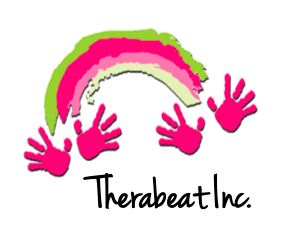Schizophrenia-- a very real and serious mental illness that has no cure, but does have treatment available. The Treatment Advocacy Center states, “Schizophrenia is a chronic and severe brain disorder that interferes with a person’s ability to think clearly, manage emotions, make decisions and relate to others” (Treatment Advocacy Center, para. 1). Managing symptoms of schizophrenia can be a difficult task, but with treatment combined with music therapy there is a way to reduce the negative symptoms. A randomized controlled trial administered by Ulrich et al. (2007) was designed to “examine the effectiveness of music therapy in increasing interpersonal contact, reducing negative symptoms and enhancing QOL of schizophrenic acute care in-patients” (p. 363). This is important information for Music Therapists to assist in helping manage these symptoms or similar ones within this or any population they work with.
With schizophrenia being “one of the most serious mental disorders,” treatment is necessary, which is why both groups involved in the study--experimental and control-- continued their standard treatments (Ulrich et al., 2007, p. 362). Throughout the study the experimental group received their standard treatments along with music therapy. One of the main focuses during the music therapy sessions was to have the patients working together in a cohesive group. Activities in the sessions included instrument play together on rhythm instruments, singing preferred music, as well as, group discussions. Rhythm instruments were utilized due to the nature of the instrument stopping any sound whenever the player immediately stops playing it, therefore allowing the patients to be in control of their music making. The music therapist utilized an eclectic approach with some behavioristic approaches during the sessions. Data was collected before and after each music therapy session by questionnaires completed by the nurses and patients.
The three hypothesis’ that were tested included: patients interacting positively with others, music therapy decreasing negative symptoms, and music therapy improving quality of life (Ulrich et al., 2007, pp. 364-367). The results showed for the first hypothesis that there was no difference between groups as assessed by the nurses, but patients in the experimental group indicated that their interaction amongst others had improved, therefore this hypothesis was accepted (Ulrich et al., 2007, p. 365). The results showed for the second hypothesis that there was a decrease of negative symptoms amongst the experimental group, therefore this hypothesis was also accepted (Ulrich et al., 2007, pp. 365-367). Lastly, the results showed for the third hypothesis that there was no difference between the two groups, therefore this hypothesis was rejected. The last hypothesis being rejected could be due to the control group engaging in another activity while the experimental group received music therapy, therefore quality of life was not decreasing for either group. Therefore, this study showed that music therapy can assist with patients interacting with others in a positive way, as well as decrease negative symptoms for schizophrenic patients.
All in all, music therapy can have a positive effect on psychiatric in-patients’ social interactions and decrease negative symptoms within their daily lives. This study sample included only 37 patients, but still resulted in positive findings. More research of larger samples could open many opportunities for this population. Music therapy has “no negative side effects and costs only moderately” and has shown to be “effective for primary schizophrenic patients for whom negative symptoms are central” (Ulrich et al., 2007, p. 369). Allowing this population to engage in positive treatment such as music therapy, “could increase the patient's abilities to adapt to the social environment in the community after their discharge from the hospital” which would be a very positive outcome for a patient diagnosed with schizophrenia (Ulrich et al., 2007, p. 369).
-Kennedi Walz, Music Therapy Intern
References
Long Beach Post Partner. (2013, September 12). Mental Health Programs at Community Hospital Long Beach Leave Positive Impact, Fill Void in Community. https://lbpost.com/news/health/mental-health-programs-at-community-hospital-long-beach-leave-positive-impact-fill-void-in-community (image)
Treatment Advocacy Center. (n.d.). Schizophrenia – Fact Sheet. www.treatmentadvocacycenter.org/evidence-and-research/learn-more-about/25-schizophrenia-fact-sheet?gclid=Cj0KCQjwwLKFBhDPARIsAPzPi-KYxKmsJfyRtgcUAQCMM_I5kUfvw225OiZlniWk9xfP8W1XwmzAg5saAoUBEALw_wcB.
Ulrich, G., Houtmans, T., Gold, C. (2007). The additional therapeutic effect of group music therapy for schizophrenic patients: A randomized study. Acta Psychiatr Scand., 116(5), 362-70. doi: 10.1111/j.1600-0447.2007.01073.x.

